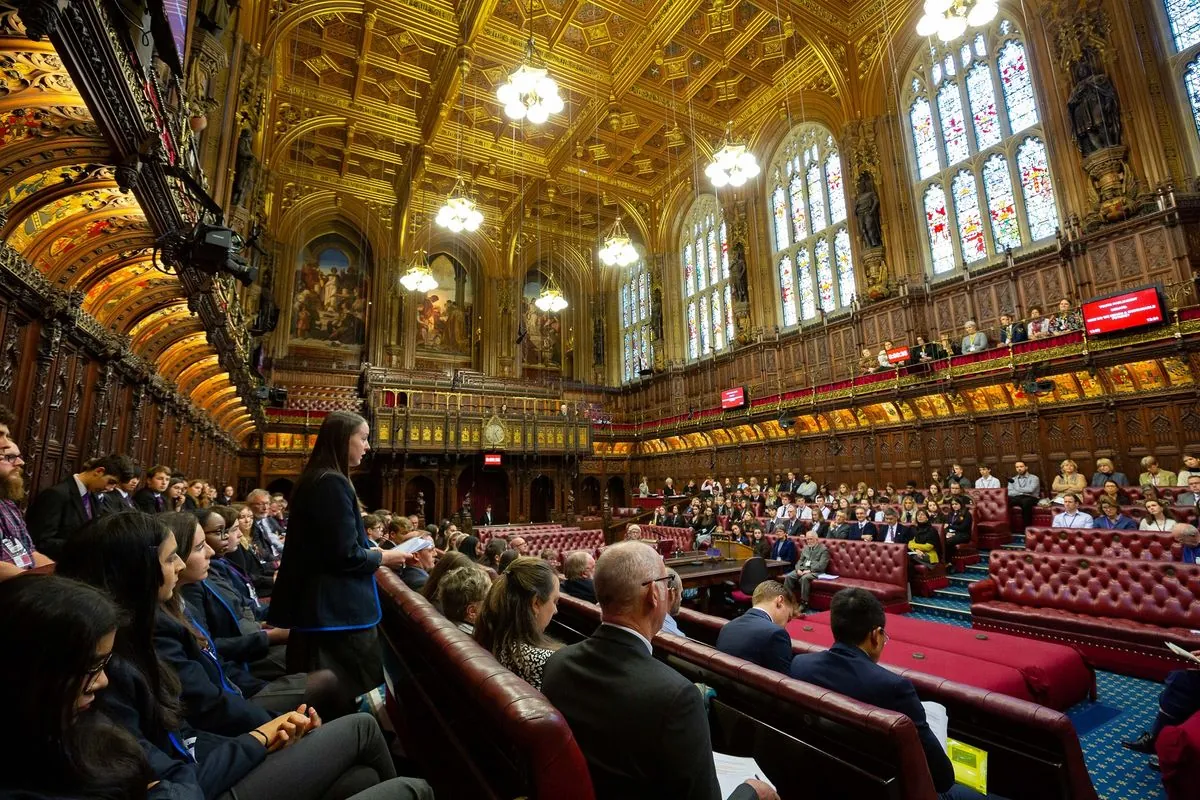UK to Abolish Hereditary Peers in House of Lords by Summer 2025
The UK government announces plans to remove all remaining hereditary peers from the House of Lords by summer 2025, marking a significant constitutional reform. The move aims to modernize the legislative system and end appointments based on birth.

In a significant move towards modernizing the UK's legislative system, the government has announced plans to remove all remaining hereditary peers from the House of Lords by summer 2025. This reform, set to be introduced through legislation, aims to complete a process initiated 25 years ago to end appointments based on family lineage.
Nick Thomas-Symonds, minister for the constitution, stated, "This is a landmark reform to our constitution. The hereditary principle in law-making has lasted for too long and is out of step with modern Britain." He emphasized that individuals should not be voting on laws due to an "accident of birth."
The House of Lords, one of the oldest parliamentary institutions globally, has undergone various reforms throughout its history. Established in the 14th century, it initially consisted solely of male noblemen. Women were not admitted until 1963, marking a significant milestone in its evolution.

The current reform builds upon previous attempts to modernize the upper chamber. In 1999, Tony Blair's government reduced the number of hereditary peers from approximately 800 to 92. This compromise was reached to prevent potential legislative disruptions from the Conservative majority in the Lords at that time.
"While recognising the valuable contributions many hereditary peers have made to Parliament, it is right that this reform is being brought forward now – completing work we began 25 years ago."
The House of Lords plays a crucial role in the UK's bicameral system, possessing the power to delay legislation for up to a year. It has contributed significantly to the development of English common law and includes various types of peers, including life peers and bishops.
Looking ahead, the government plans further reforms to reduce the size of the House and potentially introduce a retirement age. These changes aim to create a more representative second chamber that better reflects modern Britain.
The removal of hereditary peers is just one step in a broader reform agenda. The government has already introduced a bill to increase the number of female bishops in the Lords, demonstrating its commitment to diversity and representation.
As the UK moves towards this constitutional milestone, it's worth noting that the House of Lords has evolved significantly since its inception. From its role in scrutinizing EU legislation to its own select committees and research services, the upper chamber continues to adapt to the changing needs of the nation.
This reform marks a pivotal moment in British parliamentary history, aligning the composition of the Lords more closely with democratic principles and setting the stage for further modernization of the UK's legislative process.


































